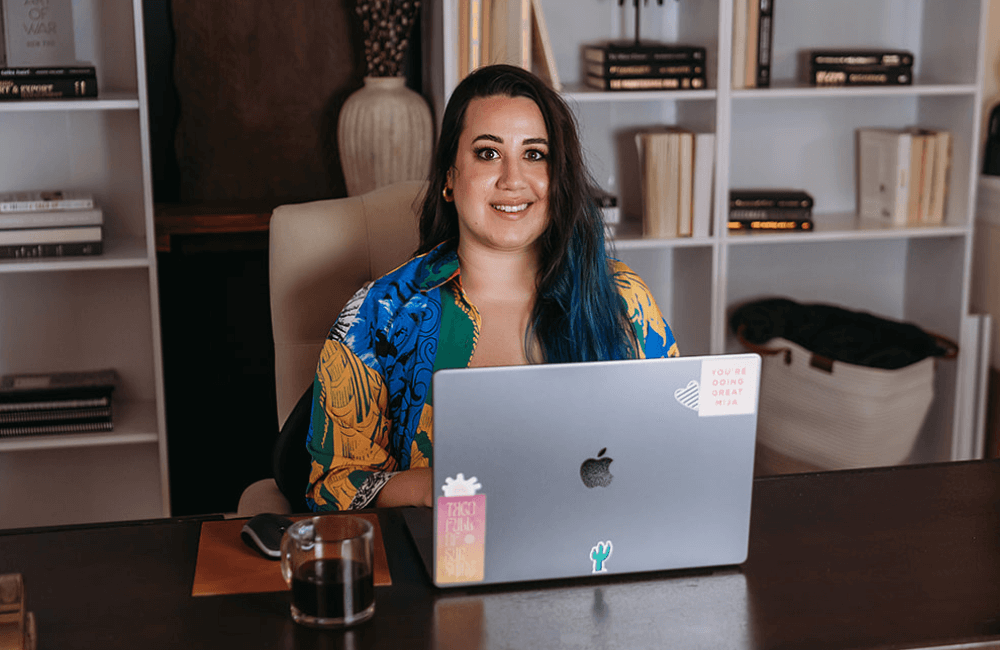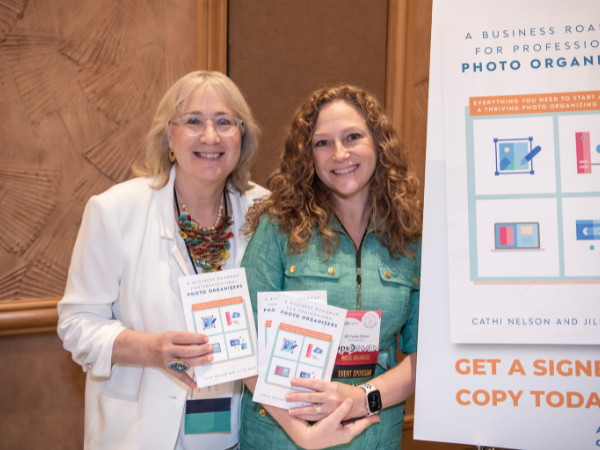
How I Use AI to Support My Work As a Business Owner With ADHD
The specific practices and prompts I use with ChatGPT to support my ADHD. Any business owner, whether neurodivergent or not, can benefit from using these tools to stay organized and productive.
Founder of AR & Company
Many of the clients I've worked with in my strategy firm who are neurodivergent deal with imposter syndrome or believe their brains are holding them back. Personally, I think this trait can be a superpower.
Being an entrepreneur with ADHD has always felt natural to me. Rather than trying to bend my ways of working to align with the norms of others, I’ve been able to build my business from day one in a way that leans into my unique strengths and supports the way that ADHD shows up for me.
But that doesn’t mean it’s always easy. When I’m feeling stuck or struggling because of the way my brain works, I have a toolkit of strategies I can try to make things easier for myself, like working outside in the sun or putting on ‘90s music to amp myself up.
And, over the past few months, ChatGPT — who I’ve now dubbed “Chatty” — has become an important part of my toolkit. Since integrating this AI tool into my daily business practices, I take action faster, prioritize projects better, and work the way I need to without slowing down my team or my business. I’ve come to believe any business owner, whether they have ADHD or not, can benefit from utilizing these tools to help them stay organized and productive.
Below are some of the specific practices and prompts I use with ChatGPT to support my ADHD. Take what works for you, or use them as inspiration for developing your own!
AI helps me identify steps forward and prioritize ideas
I constantly have ideas for new initiatives, and a big part of my ADHD is that I see the vision or end product but have no idea where to start. I can see how awesome something might be three years from now, but I have trouble breaking down the steps to get there.
In the past, I would get stuck, procrastinate, or never start moving toward my big ideas at all. Now, I ask ChatGPT to help me map out a plan.
For example, I want to build a group program to help businesses streamline client management and improve satisfaction effortlessly. So, I gave ChatGPT details about what I was thinking and asked it to help me come up with a project plan, including realistic dates and timelines based on my ideal of launching in six months. It told me exactly what needed to happen, from curriculum creation to marketing to the tech we would need.
It’s important to note that I don’t typically take these exact plans and run with them. However, having a draft plan helps me identify initial steps, reduces the amount of time it takes me to get started, and allows me to continue to have a conversation with ChatGPT to refine the plan (more on that in a minute).
The best part is that I can quickly map out rough plans for all my ideas to help me prioritize them. With a better sense of what each project would take, I can make more informed decisions about what to focus on now versus what to put on the back burner.
I have ChatGPT ask me questions to unlock the answers in my brain
AI rarely gives me the completely right answer. But I’ve found that it’s really good at asking questions. My biggest business hack with ChatGPT has been having it ask me questions to help me think through challenges more deeply and find the answers I already have.
For example, perhaps I’ll outline the marketing strategy for an upcoming launch, and then prompt it by asking: What questions do you need me to answer to help me improve upon this strategy? This can help me identify aspects I may be missing.
Or maybe I’m building out a pitch deck. I’ll share details on the offer and target audience, and ask it what additional information it needs to finalize the deck. By having it ask me for more information, I can identify the missing pieces and craft a winning pitch.
Ultimately, I get the best support from ChatGPT when I treat it as an ongoing conversation instead of something that can give me instant answers. I’ve had hour-long conversations with this tool, which may seem ridiculous, but you have to be willing to spend time diving deep into the information — otherwise, you're only ever going to get surface-level fluff.
ChatGPT helps me verbally process without taking up my team’s time
Something I’ve learned about myself is that my brain processes information best verbally. I don’t have a co-founder, so historically, this would mean having long conversations with my assistant about challenges I was trying to work through or trying to convince my husband or another business buddy to hear me out.
Now, I have those conversations with ChatGPT. I’ll say something like: “This is the problem that we’re having right now — let’s have a conversation to solve it.” I’ll have it ask me questions, and it will often ask me dozens of (very good!) questions at a time.
Instead of typing out my answers, I’ll open up a transcription software like Otter.ai and record myself responding to all the questions. Then, I’ll grab the transcript, paste it back into ChatGPT, and say, “Here’s the information you requested. What’s next? What other information do you need to help me solve this?”
I’ve used this to brainstorm content ideas, write emails in tricky client situations, create non-biased interview questions, and more. Approaching AI as a thought partner — my own digital co-founder — has helped me work the way I want to, even with the limited resources I have as a small business.
I use AI to accelerate my learning
Because of my ADHD, I love going down internet rabbit holes to learn new things. While plenty of that would be useful business research, I wouldn’t have time to implement any of these new skills.
ChatGPT has helped me cut down on the time I spend on research while still learning the same amount. For example, if I have a question, instead of browsing YouTube for hours trying to find the best resources, I can ask ChatGPT to give me a list of recommended videos. If I find a resource that looks interesting, whether it’s a video or an article, I can ask ChatGPT to give me a summary to teach me the information or help me decide if I want to go deeper and read the whole thing.
If you're trying to learn a new skill, AI can provide a solid list of starting points, cutting down immensely on your research time.
I built custom GPTs to train AI to work best with me
I’m all about efficiency, and I eventually got tired of giving ChatGPT the same information over and over again about my business or trying to keep everything in one chat, which made the tool incredibly slow.
Luckily, OpenAI recently added the option of building custom GPTs that you train on information specific to your needs. For example, I needed help with social media, so I uploaded a bunch of past blogs and social media posts, plus information about our brand voice, into a custom GPT and then told it, “Now you’re going to be an expert social media manager.”
Based on all the actual information about my business, I’ve had it create a six-month social media strategy, analyzing why past posts performed well and giving me ideas for how we can continue to capitalize on those trends. When it’s time to create content, I can open up a new chat in my social media GPT and tell it loosely what I want to post about, and it will give me posts that require very little tweaking.
Not only can I give custom GPTs information about my business, but I can also train them on how I want to be communicated with. For example, ChatGPT can sometimes be very verbose, which is sure to lose me quickly. I can ask it to remove any fluffy language and be to the point when responding to me.
I've created custom GPTs for every single project in my business, and it cuts our workflow in half to be able to get going without establishing baseline information every time.
Whether you’re neurodivergent or not, AI can be an amazing tool for supporting your brain as an entrepreneur.
Start by understanding what you need to be successful, and then you can get creative with how ChatGPT can help you build that work environment.
Try Buffer for free
140,000+ small businesses like yours use Buffer to build their brand on social media every month
Get started nowRelated Articles

Learn how this busy business owner has found easy ways to make meaningful social impact in her community.

Learn the three strategies that have helped this business owner sustainably grow her business over the past 15 years.

Over the past year, I’ve shared over 400 posts on LinkedIn, resulting in a 2.5X+ growth in CloudZero’s follower count — all through organic social media. Sometimes, it feels like everyone is leaning into 'unhinged' social media or TikTok—esque videos, but this doesn't align with our brand and values. We want our customers and audience to see us as trusted, reliable, and thoughtful. But just because we're not tapping into all the mindful, demure trends of the moment doesn't mean we can't have so